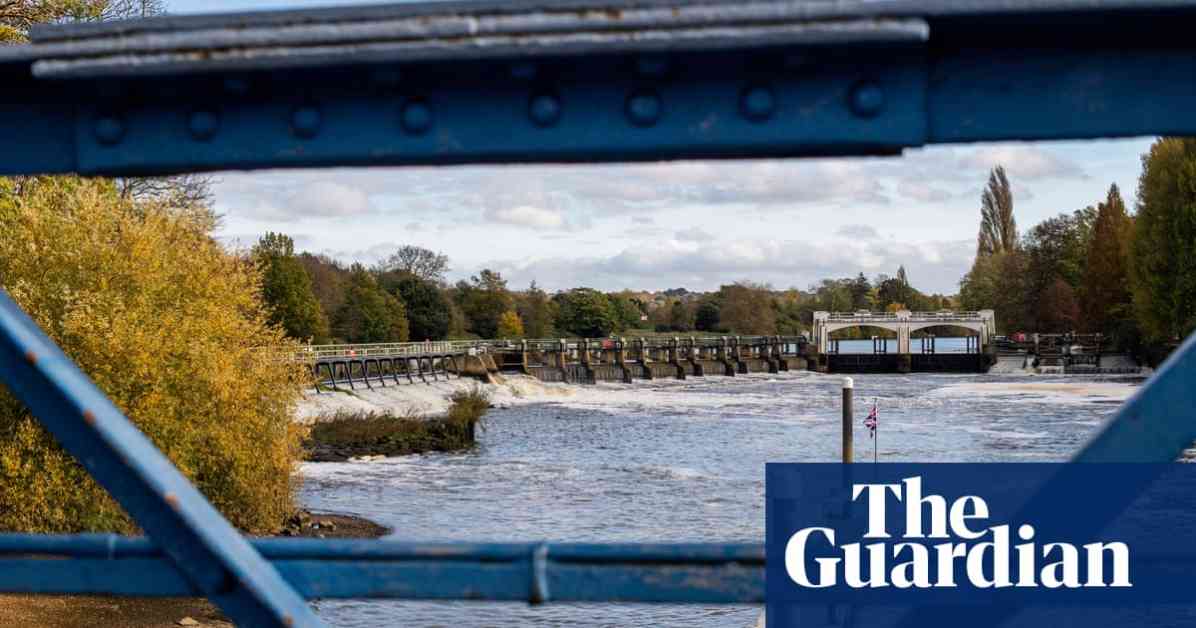Labour Party in Chaos Over Thames River Cleanup Proposal
The Labour Party found itself in disarray as conflicting agendas emerged over plans to clean up the River Thames for swimming. Mayor of London, Sadiq Khan, revealed intentions to prioritize the area of the river in Teddington, south-west London, to make it safe and clean for swimming as part of a new 10-year strategy to reduce pollution and promote recreational activities around the river.
Supporting Khan in his announcement was the environment secretary, Steve Reed. However, just last week, Reed approved the next stage of a controversial scheme that would allow Thames Water to pump 75 million liters of treated sewage into the river at the same spot in Teddington. This move has sparked concerns among environmental campaigners regarding potential damage to river systems, increased water temperatures, changes in salinity, and impacts on fish and biodiversity.
Environmental Concerns and Conflicting Plans
Environmental campaigners have raised valid concerns about the potential negative impacts of the proposed Thames Water scheme in Teddington. The planned abstraction of treated effluent back into the river raises questions about the safety of the water for swimming and the overall health of the river ecosystem. Swimmers in the Teddington area have expressed their apprehension about the conflicting messages coming from the government and local authorities regarding the cleanup efforts and the sewage pumping scheme.
Marlene Lawrence from the Teddington Bluetits group, which regularly swims in the river at Teddington, highlighted the importance of ensuring that the river remains safe for public use. She emphasized the need for a comprehensive approach that considers both the cleanup initiatives and the potential environmental consequences of the proposed sewage pumping scheme. The concerns raised by local residents and campaigners reflect a broader sentiment of uncertainty and confusion surrounding the government’s approach to river management.
Political Backlash and Public Outcry
The conflicting plans for the River Thames have sparked political backlash and public outcry, particularly in the Teddington area. Liberal Democrat MP for Twickenham, Munira Wilson, has been vocal in her opposition to the Thames Water scheme and has called for clarity on the government’s priorities regarding water quality and environmental protection. The decision to approve the water resources management plan, which includes the Teddington scheme, has raised questions about the government’s commitment to safeguarding the river and its ecosystems.
Wilson’s efforts to challenge the approval of the Thames Water scheme reflect a growing sense of urgency among local residents and environmental activists. The concerns raised by Wilson and other critics highlight the need for transparent decision-making processes and accountable governance in environmental management. The conflicting signals from government officials and regulatory bodies have sown confusion and distrust among stakeholders, further complicating efforts to address pollution and protect the River Thames.
Environmental Impacts and Regulatory Oversight
The proposed Thames Water scheme in Teddington raises significant environmental concerns related to water quality, river ecosystems, and public health. The potential effects of pumping treated effluent into the river include elevated water temperatures, changes in salinity, and impacts on fish and biodiversity. The presence of forever chemicals, such as per- and polyfluoroalkyl substances (PFAS), in the treated effluent further compounds the environmental risks associated with the scheme.
Regulatory oversight and scrutiny are essential in evaluating the potential impacts of the Thames Water scheme on the River Thames. The rejection of a similar proposal by the Environment Agency in 2019 underscores the importance of robust environmental assessments and stakeholder engagement in decision-making processes. The need for sustainable water management practices and responsible resource allocation is paramount in safeguarding the health and integrity of the river and its surrounding ecosystems.
Government Response and Future Plans
The government’s response to the conflicting plans for the River Thames reflects a commitment to balancing water supply needs with environmental protection and public health concerns. The Department for Environment, Food and Rural Affairs has emphasized the importance of increasing water supply capacity while safeguarding the environment and promoting sustainable water management practices. Legislative reforms and private-sector investments are expected to support efforts to clean up waterways, upgrade infrastructure, and accelerate the development of water resource projects.
Mayor Sadiq Khan’s announcement of a 10-year strategy to clean up the River Thames signals a proactive approach to addressing pollution and promoting recreational activities along the river. The proposed cleanup initiatives, coupled with the construction of the Thames tideway tunnel, are expected to deliver transformative environmental benefits and enhance the overall quality of the river ecosystem. Collaboration between key stakeholders, including Thames Water, local authorities, and environmental groups, will be crucial in implementing effective solutions to address pollution and improve water quality in the River Thames.
Conclusion
The Labour Party’s internal discord over the Thames River cleanup proposal underscores the complex challenges facing environmental management and water resource governance in the UK. The conflicting agendas surrounding the Teddington scheme highlight the need for transparent decision-making processes, robust regulatory oversight, and inclusive stakeholder engagement in environmental policy and planning. As government officials, environmental activists, and local residents continue to voice their concerns and advocate for sustainable water management practices, it is essential to prioritize the protection of the River Thames and its ecosystems for the benefit of current and future generations.












